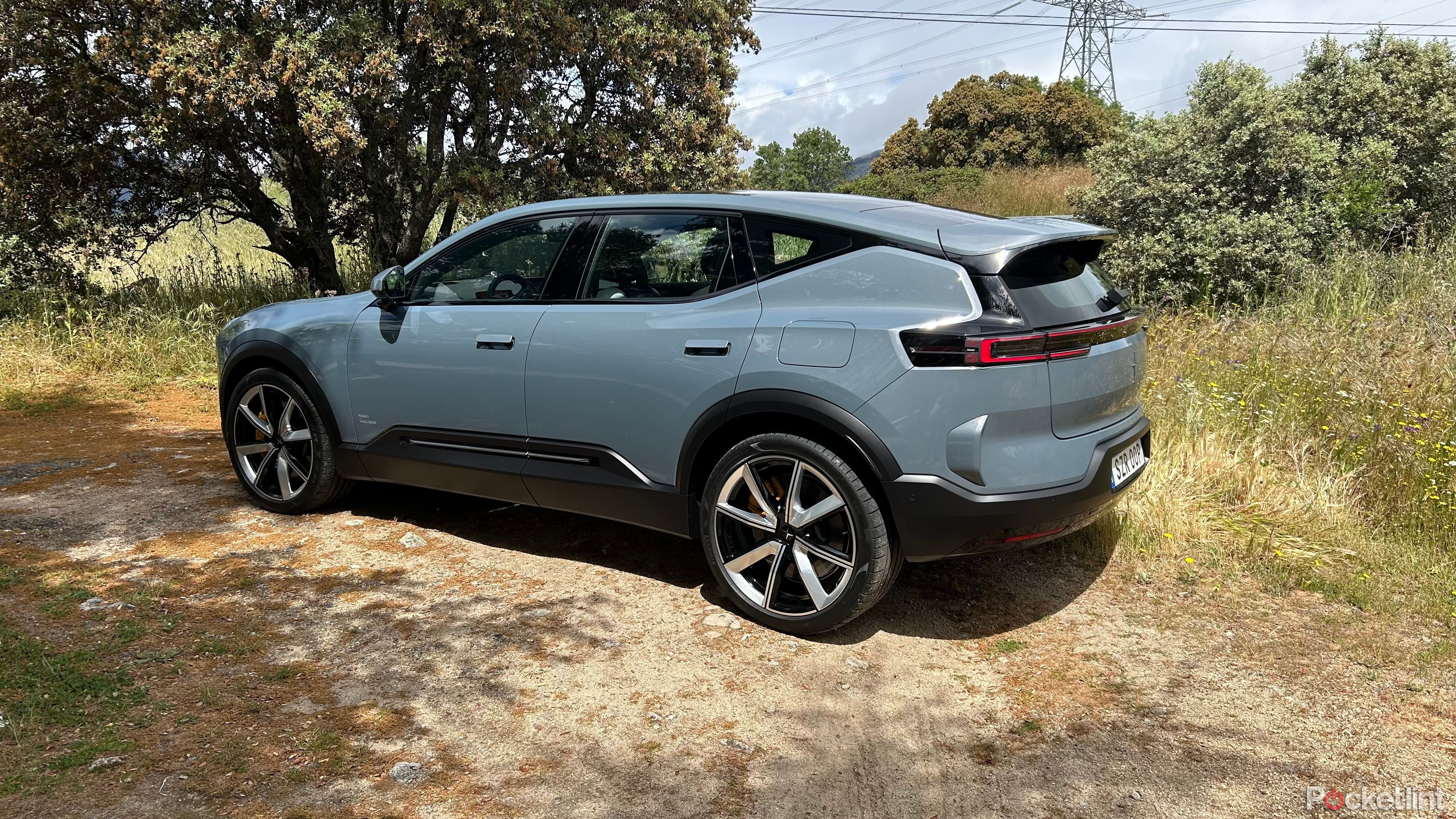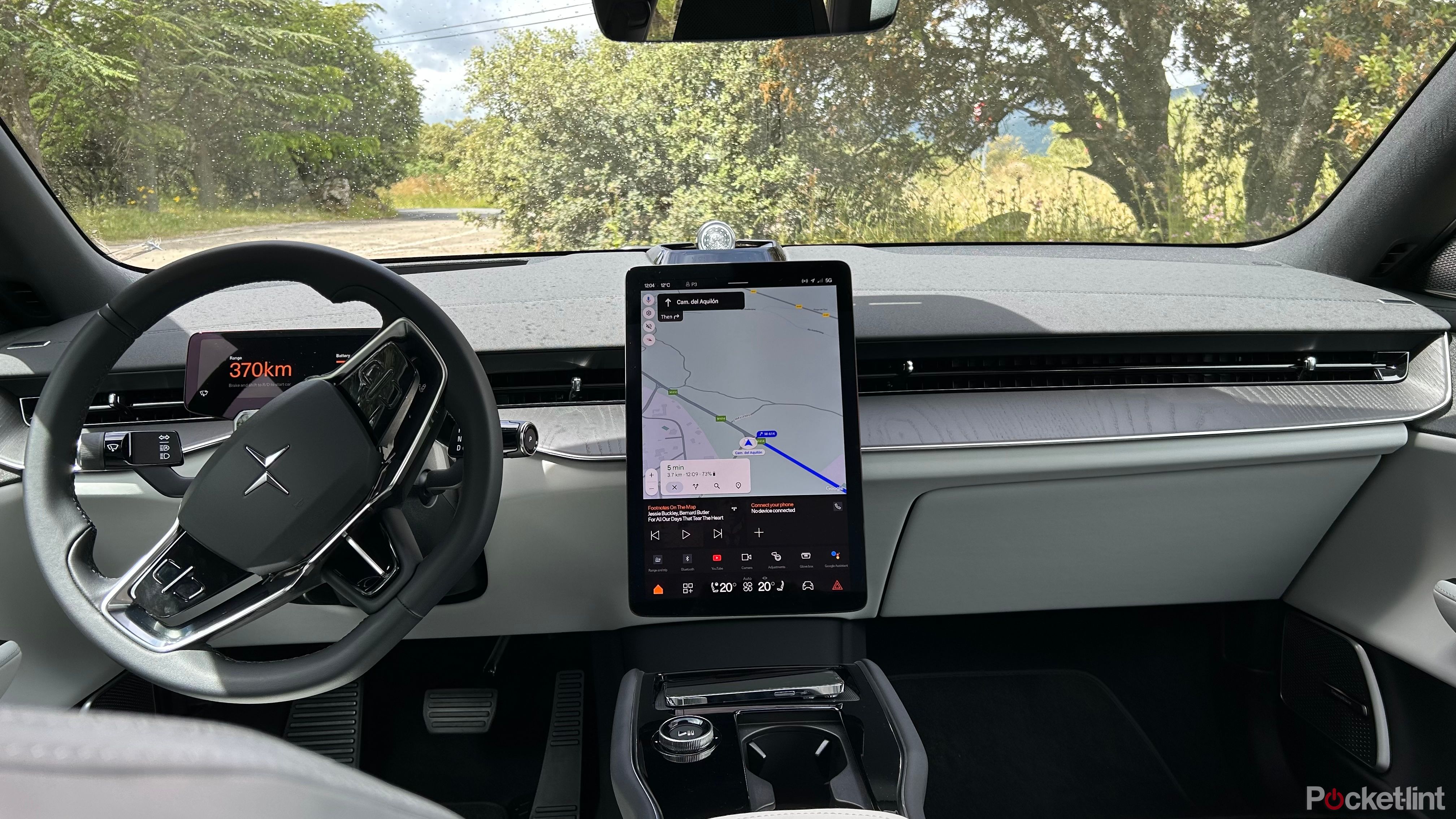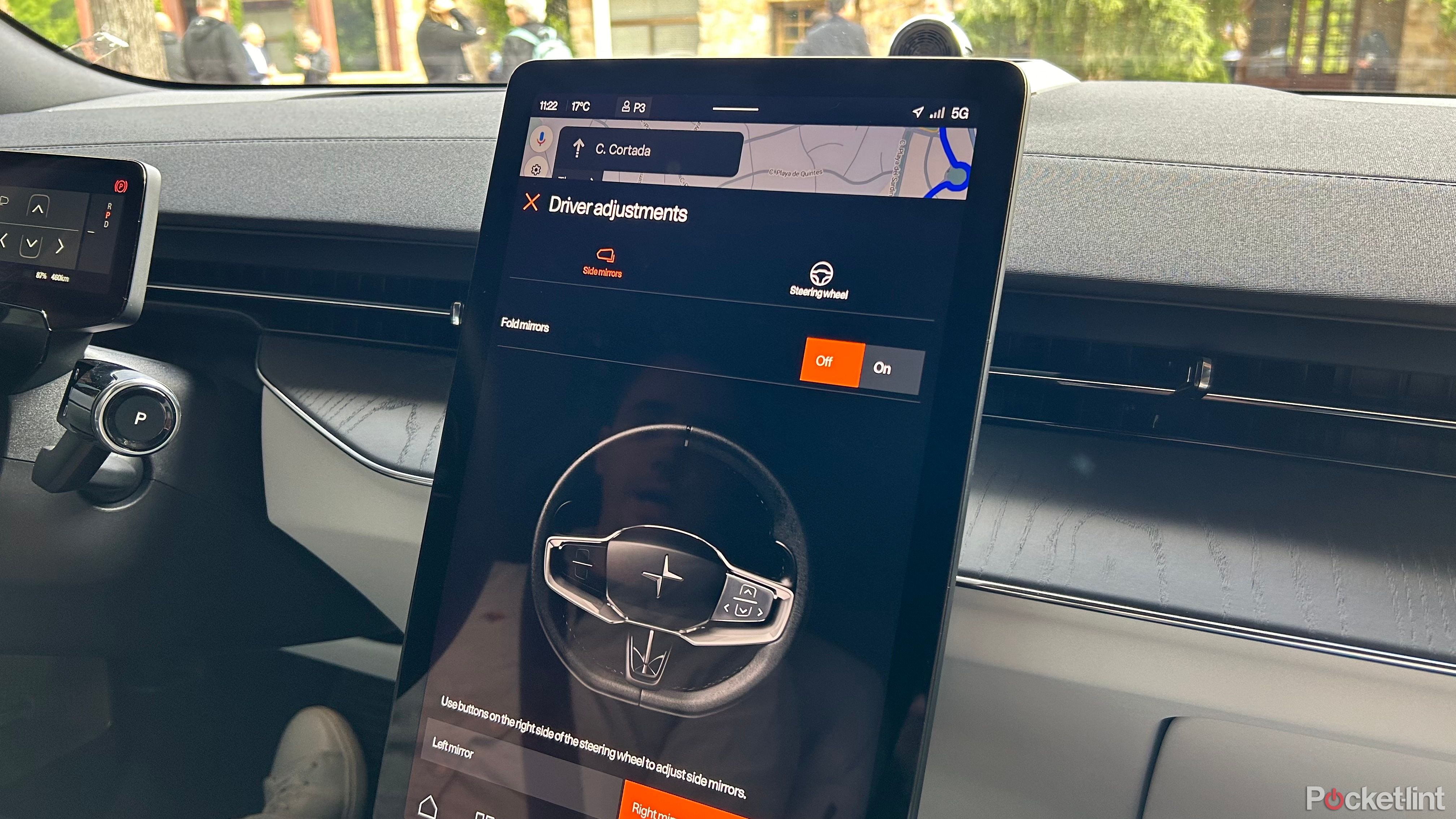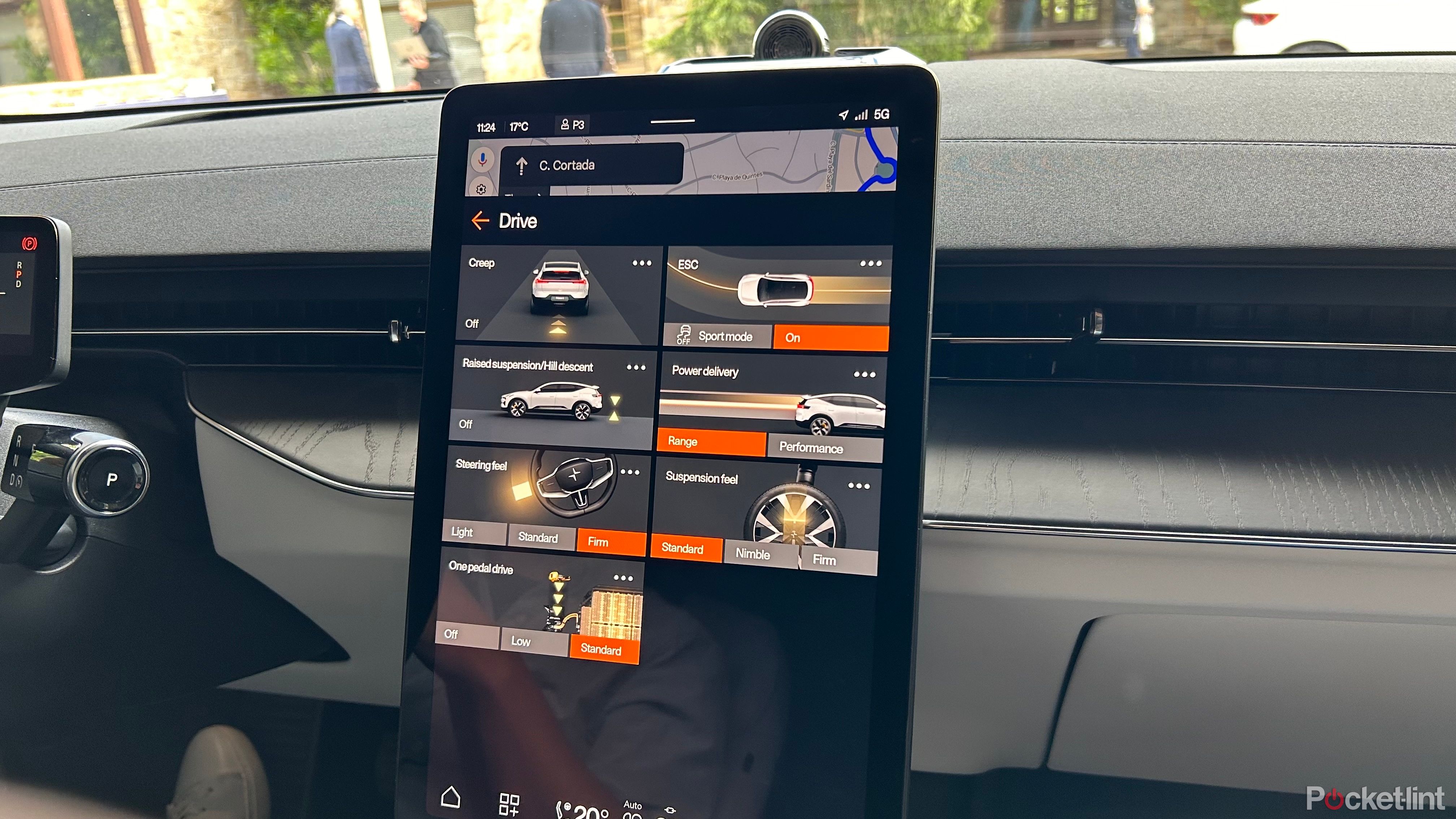Key Takeaways
- Polestar is rapidly expanding its electric car lineup with models like the Polestar 3, offering a blend of sedan and SUV-like experiences.
- The Polestar 3 impresses with Scandinavian cool design, high-quality interior, and a powerful yet efficient performance on the road.
- While the touchscreen controls may be a drawback for some, the Polestar 3’s overall package of technology, comfort, and driving experience is worth considering.
Polestar is on the up, having expanded from just one electric car to three. There are more models on the way too and the expansion is happening quickly. While the Polestar 2 offers an excellent sedan-like EV experience, the Polestar 3 is more SUV-like in stature. Temptingly, the soon-to-arrive Polestar 4, which is the model with no rear window that everybody has been talking about, is somewhere in-between. Looking even further into the future, Polestar is also working on a convertible sports car.
How we test and review products at Pocket-lint
We don’t do arm-chair research. We buy and test our own products, and we only publish buyer’s guides with products we’ve actually reviewed.
I recently spent time behind the wheel of the Polestar 3 and, having immensely enjoyed the Polestar 2, I’m glad to report that the all-electric small SUV is everything I’d hoped for too.
The model I’ve had to test is the long range, dual-motor Launch edition, which sits on impressive 22-inch option wheels and, as you can see from the images, is finished in a gray-ish hue dubbed Thunder. Inside, the interior layout is rather grand and looks even more plush thanks to the funky Zinc Nappa upholstery.
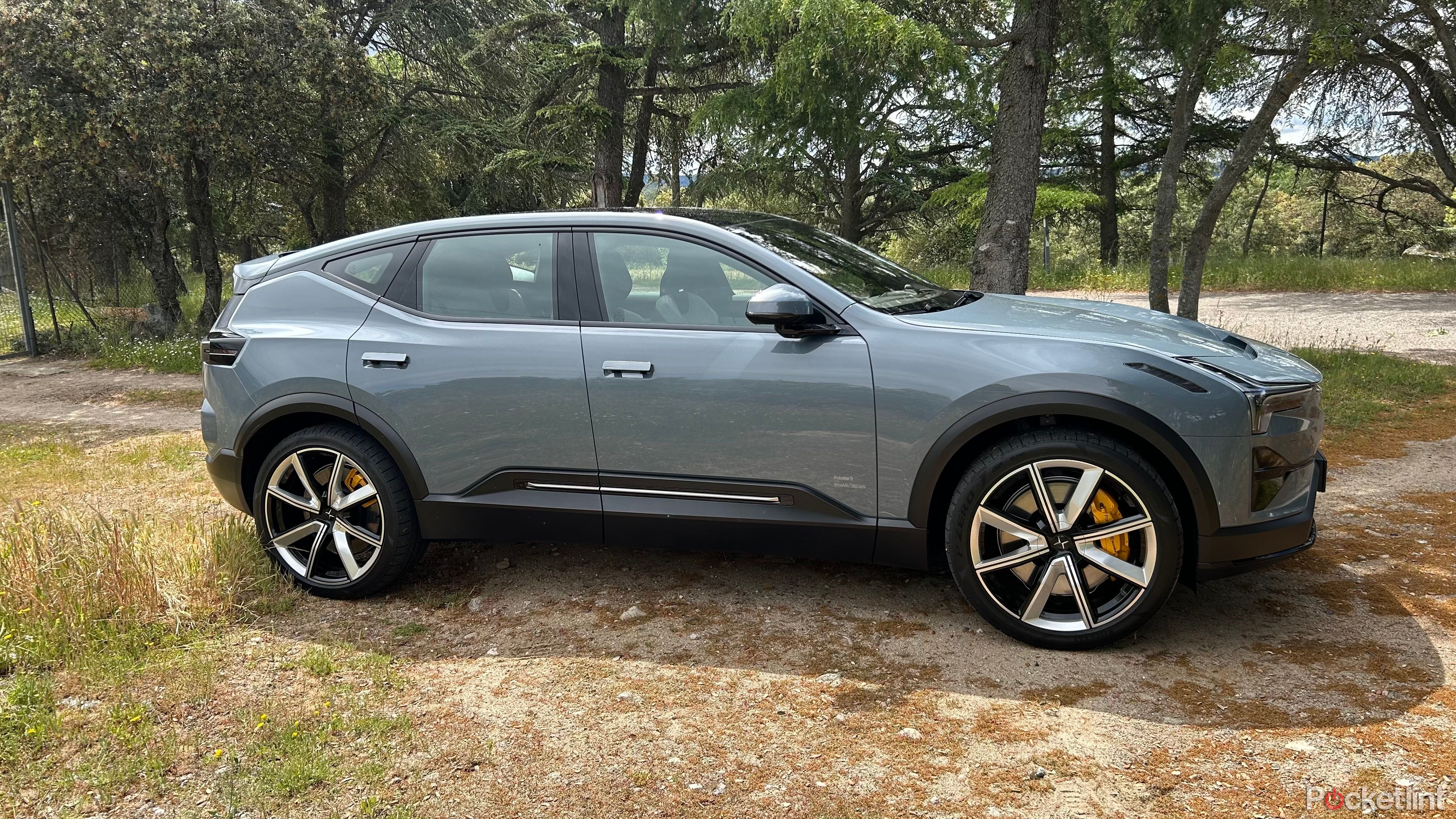
Polestar 3
The Polestar 3 is an excellent follow-up to the Polestar 2. It keeps everything I liked about that car and offers a refreshing new variation on the theme in terms of look and feel. The exterior design is distinctive enough that the car can make its own mark, while the interior feels like a quality job that’s been designed and built to a high standard. The downside is the prevalence of touchscreen controls over physical ones.
- Fabulous interior quality and comfort
- Striking minimalist exterior lines
- More than capable performance
- Lots of controls hidden in the touchscreen menu
- Similarly, there?s an absence of physical controls
Price, specs, and availability
In the UK, the Polestar 3 starts at £75,900, though there’s the special Launch edition you see here, which pushes that up to £79,900. This gets you a car with twin motors and all-wheel drive, although a single motor model will also be available and should cost a little less to boot. The US market should get the Polestar 3 later in the year with a price tag starting just shy of $75,000.
A Plus Pack grade gets you that all-important 25-speaker Bowers & Wilkins sound system, plus a head-up display and more, but I think many potential customers will be tempted by the Polestar 3 Performance Pack bundle.
This adds in the likes of gold brake calipers and tire vales, along with seat belts that come in a similar shade but more importantly, a boost in performance with 517 horsepower on tap. In the US, that’s going to set customers back by around $79,400 or $84,900 if it’s combined with the Plus pack. Nevertheless, it’s a great way to add just that little extra bling without being too showy about it. Sort of Scandinavian flash, if you like.
Polestar 3
- Engine
- Electric motor powered by Lithium-ion battery
- Drive Layout
- Four-wheel drive
- Horsepower
- 360 kW / 483 hp
- 0-60mph
- 4.8 seconds
- Torque
- 841 Nm
- Top Speed
- 130 mph
Design and Build
Scandi cool and practical too
Looks-wise, the Polestar 3 is intriguing and, to be honest, might fall into the SUV category for ease of describing it, but the five-seater is actually a little more of a mixed bag. Out front, there’s a tempting combination of angles and clever use of trim coloring that helps make the car distinctive and easy to spot. It’s all topped off with some excellent LED headlights. Size-wise, the Polestar 3 is 4.9 meters long, 1.61 meters high and 1.96 meters wide, which makes it big enough for most who don’t need a seven-seater. At nearly 2,600kg, it’s quite hefty too, but certainly keeps it manageable unless narrow lanes beckon.
However, it’s at the other end where the EV really comes into its own. I think the most eye-catching aspect is the way the fairly low-slung roofline runs back down into the tailgate. Meanwhile, slender taillights run across the liftback and an above-window rear spoiler adds an extra touch of purpose.
Looks-wise, the Polestar 3 is intriguing and, to be honest, might fall into the SUV category for ease of describing it, but the five-seater is actually a little more of a mixed bag.
Along the sides, Polestar designers have kept the same sort of design ethos as that seen on the Polestar 2, with the model stats displayed in the usual font behind the front wheels. Those sizeable alloys add additional status to the Polestar 3 and, combined with the low-key and very contemporary Scandinavian-flavored exterior paint, I think it’s a great success for the most part.
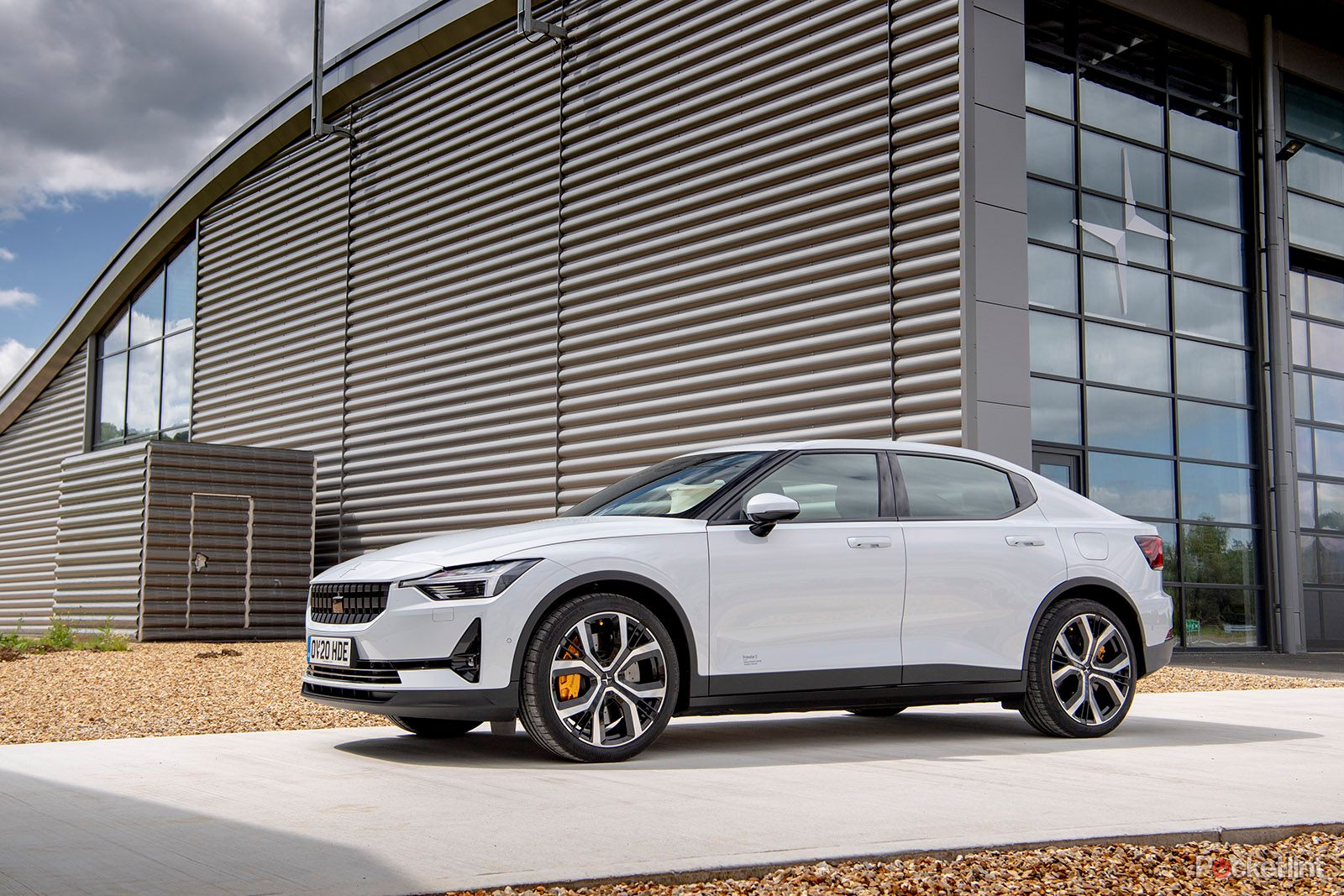
Polestar 2 review: Electric car superstar
Does the Polestar 2 give the Tesla Model 3 a run for its money? With these looks, simple upgrade spec options, and a competitive price, we think so.
A delicious interior
Quality and comfort in equal measure
During my time behind the wheel of the Polestar 3, I got to try out the Bowers & Wilkins audio system and it was a real high point. I was slightly taken aback to hear the sound system forms part of a £5,000-plus option pack that makes the Launch edition so special. However, I guess if you’re spending upwards of £70k on your wheels, a few thousand more on your finance package is, perhaps, neither here nor there.
Credit where it’s due though, the Bowers & Wilkins system is excellent, which comes with the added benefit of Dolby Atmos to really help bring anyone’s music collection alive in cinematic fashion. The interior is peppered with quality speakers too, including a small bulbous variant that sits snugly in the middle of the dashboard. I spent some quality time playing with the various settings and the volume control. It is very good indeed.
The technology breakdown
Touchscreen infotainment overload
There’s been something of a minor revolt in some circles over the increasing prevalence of touchscreen controls instead of old-school physical ones. I’m certainly happy to take a bit of both, with some things working better onscreen and a lot of common functions definitely being more practical when presented as a physical switch, dial or stalk. The Polestar 3 comes with a big 14.5-inch touchscreen display, and I’ll warn you now that many of the setup and drive options nestle inside here.
It all worked for me as expected, but I do tend to think that, such is the fussiness of picking through some menu options, there’s a temptation to just put up with settings if they’re not quite right, rather than trying to get them right on the move. I got just that feeling while driving the Polestar 3. As far as I’m concerned, this isn’t such a big deal if you’re the only driver of the car, and I’ve got everything set up as I like it before I set off. Anyone sharing their car on a regular basis might feel otherwise though.
The Polestar 3 comes with a big 14.5-inch touchscreen display, and I’ll warn you now that many of the setup and drive options nestle inside here.
Aside from that, Polestar’s designers have done another great job with the overall look and feel of what sits on that big central screen as well as the finish seen on the 9-inch display in front of the steering wheel. I love Polestar’s font choices and use of color, with the whole of the tech presentation feeling like a quality job. Topping it off is the use of Android Automotive to get things like route navigation and voice control tasks done, all of which works as well as it does on my phone.
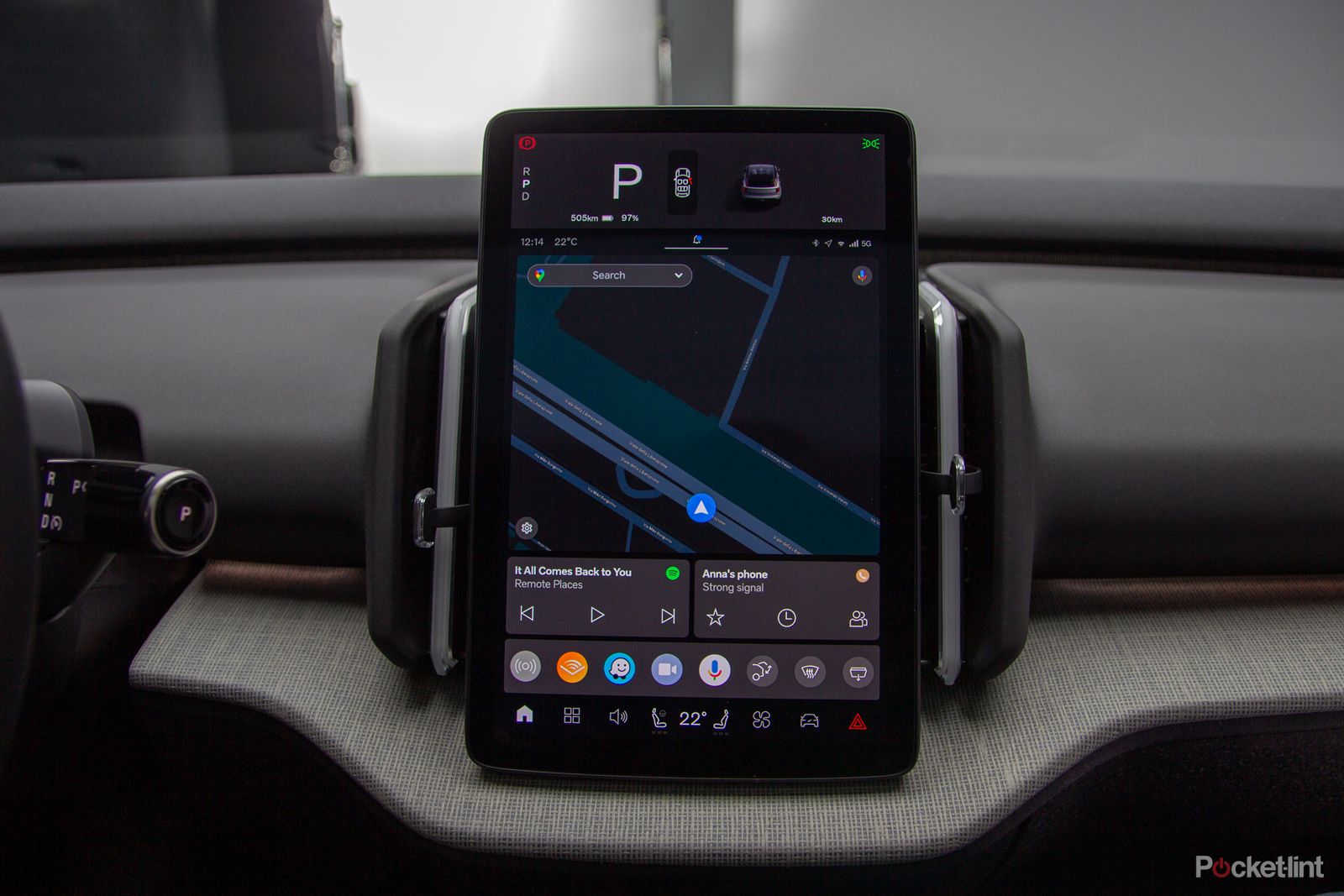
What is Android Automotive, what manufacturers use it, and how is it different to Android Auto?
Everything you need to know about Android Automotive and how it differs to Android Auto.
Battery, range and performance
Nothing to worry about
I’ve loved spending time in the Polestar 2 on previous occasions. A lot of EVs can feel a little vague and unexciting, but the Polestar 2 is a rewarding thing to drive with a lot to offer anyone who’s a fan of enthusiastic driving. The same can be said for the Polestar 3, with nothing during my time spent with it that suggests it isn’t going to be as rewarding, despite the bulkier feel of the body shape. Curiously, once you’re inside, the Polestar 3 doesn’t feel as sizable as it seems from the outside. It’s a neat quirk that makes the SUV more of a surprise than expected.
Another pleasant surprise is the way the Polestar 3 benefits from adaptive suspension, as well as steering that can be tweaked to match my driving. Admittedly, I had to dip into the sizeable touchscreen in order to adjust the Drive settings, but after playing around with the options, I’m glad to report that the Polestar 3 can be honed to provide a lot of fun if I’m heading for the hills. Having done just that and with Performance mode selected, the Polestar 3 turns out to be a more than capable machine that can take on tough mountain corners with very little in the way of body roll.
Curiously, once you’re inside, the Polestar 3 doesn’t feel as sizable as it seems from the outside. It’s a neat quirk that makes the SUV more of a surprise than expected.
Just like every other EV out there, I found the Polestar 3 provided me with more than enough power and felt well suited to any driving condition. On damp, tortuous mountain roads, the 180kW motors at each end of the car help to handle bends really well, with the added benefit of the torque vectoring system allowing smart power distribution to the drive wheels. Highway motoring, on the other hand, is effortless with thick chunks of torque available for the likes of overtaking and busy slip roads.
There’s a beefy 111kW battery pack in the Polestar 3, so that gave me up to 392 miles on a good day, and even with the SUV in full workout mode, I thought it still seemed pretty efficient. I didn’t get to keep it long enough to measure this over time, but the good news is that the Polestar 3 can be charged at speeds of up to 250kW, so expect a 10 to 80 percent charge to take around half an hour. It’s a 400-volt system, mind, so not as swift and speedy as those rivals from Korea with their 800-volt setups.
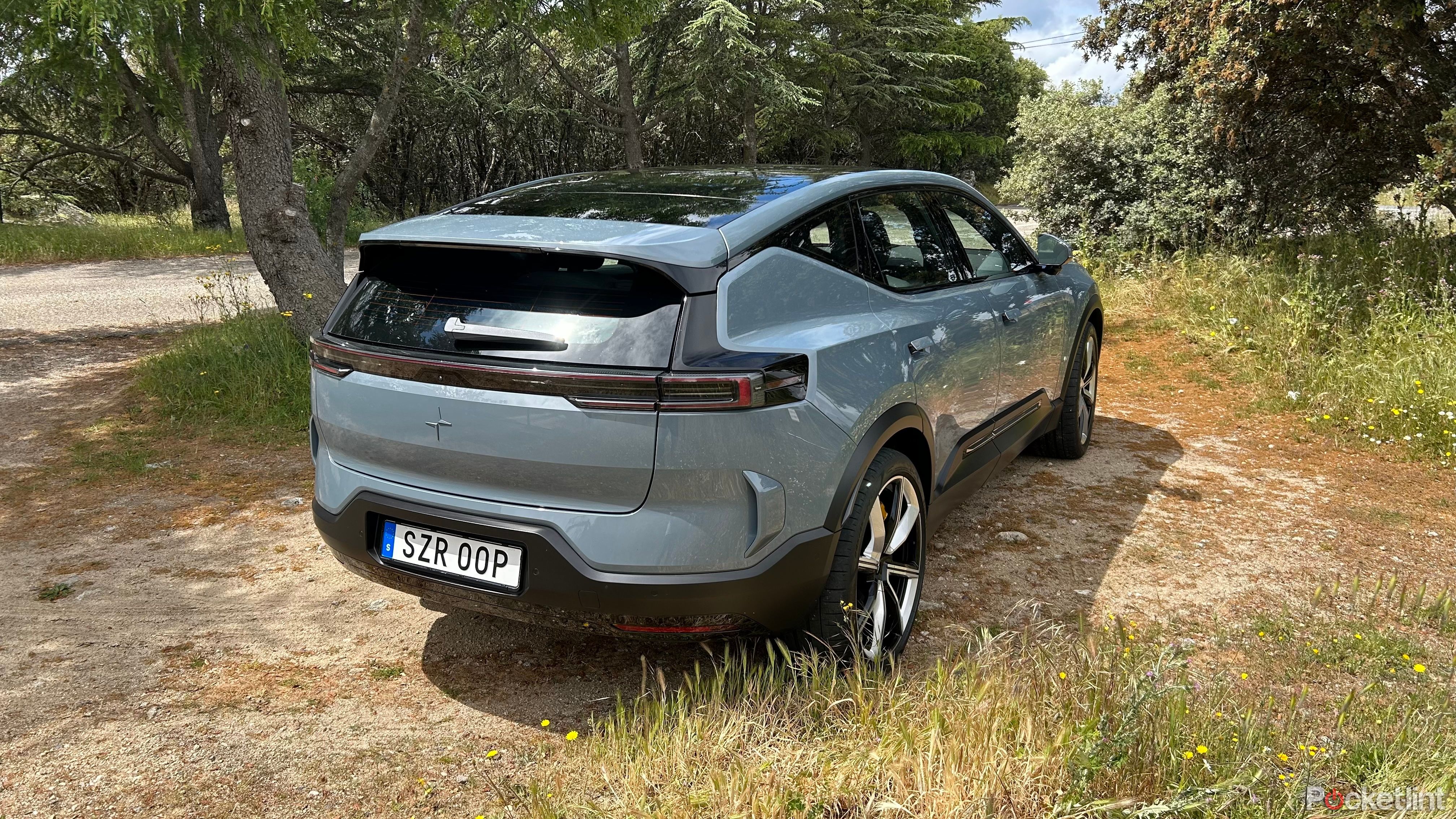 Should you buy the Polestar 3?
Should you buy the Polestar 3?
Overall, I’ve been left hugely impressed by the Polestar 3, and it’s got everything the Polestar 2 has but done in more of an SUV format. I’ll admit that skeptics of touchscreen controls might find something to grumble about as they pick through the menus hidden inside the infotainment system. However, once I’d familiarized myself with its inner workings and fired up that immense Bowers & Wilkins audio system, any doubts I had quickly fizzled away. There’s performance, power and poise here too, all topped with a quality Scandinavian feel that makes the Polestar 3 a trendier option than something like the similarly impressive, though slightly more capacious Volvo EX90.


Polestar 3
Recommended
Trending Products

Cooler Master MasterBox Q300L Micro-ATX Tower with Magnetic Design Dust Filter, Transparent Acrylic Side Panel…

ASUS TUF Gaming GT301 ZAKU II Edition ATX mid-Tower Compact case with Tempered Glass Side Panel, Honeycomb Front Panel…

ASUS TUF Gaming GT501 Mid-Tower Computer Case for up to EATX Motherboards with USB 3.0 Front Panel Cases GT501/GRY/WITH…

be quiet! Pure Base 500DX Black, Mid Tower ATX case, ARGB, 3 pre-installed Pure Wings 2, BGW37, tempered glass window

ASUS ROG Strix Helios GX601 White Edition RGB Mid-Tower Computer Case for ATX/EATX Motherboards with tempered glass…


